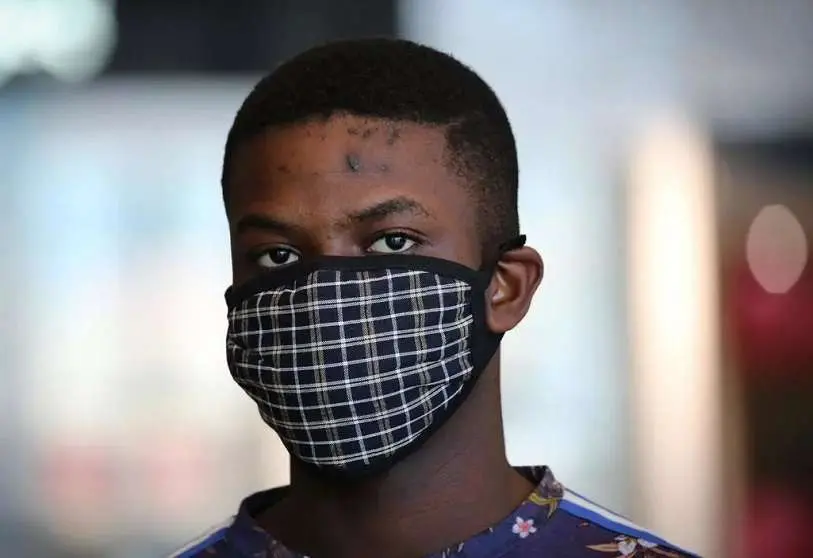COVID-19: Africans are not just footballers...

Ever since that little invisible virus broke into our lives, it's been turning our lives upside down. Our work, our little habits and the way we see the world have had to be changed in record time. COVID-19 has also revealed what we refused to see and has put an end to certain preconceived ideas. One of the first revelations was the exposure of health systems in European countries that were considered to be much more efficient. In France we still do not have masks, while in Morocco millions of them have been manufactured and a rapid screening test is being developed at the Pasteur Institute in Senegal.
In the wake of unexpected discoveries: France has learned in astonishment that the most successful researchers in its laboratories are "African and Arab". The author of this announcement is none other than the great Professor Didier Raoult. This doctor is not like the others, known as much for his numerous scientific publications as for his frankness, and has become a media star in recent weeks. We have learnt to listen to the scientists, in France and elsewhere, in the face of the health crisis.
Professor Raoult, for those who do not yet know him, had advocated the use of chloroquine to treat patients with COVID-19. A treatment that was initially criticised by the scientific community and especially by laboratories before its use became widespread on 26 March. The recognition of Raoult's protocol was reflected in Emmanuel Macron's visit to the University Hospital Institute of Marseille. The images of the president's visit on April 9 quickly went viral and it was not because of everyone's interest in COVID-19 at this time, or the charismatic doctor, but because of his students... "Where are you from?" he asked the doctoral students accompanying the professor: Senegal, Burkina Faso, Mali, South Africa, Algeria, Morocco, Tunisia...
African presence in one of the most efficient French laboratories rightly captured the attention of both the French and the Africans. Raoult added a few days later that half of the doctoral students in France are foreigners and further specified that "the best, the most dynamic, those who work on Sundays are the Africans and the Arabs". "Science in France functions thanks to immigrants, the driving force behind the war is immigrants".
The eminent professor sweeps away a century of clichés about African and North African migration with a simple statement. We are a far cry from the migratory waves of the 1950s, 1960s and 1970s, when North African workers came to work in France to escape the misery of its mountains and return to the misery of the cities and shanty towns.
Today, whether we like it or not, the contribution of these foreigners is proving essential to scientific research in France. History will recall that it took a global pandemic to discover that Africans are not only good at football. And if they have good legs, they also have a head and a brain. They bring knowledge.
A new era has been introduced to the silence from the media. But will this change the way Africans are seen? Those who leave Africa right now are not simply poor, they are also students, researchers... in short, an intellectual and scientific elite. And if this is good news for France, it does not necessarily bode well for the continent that is losing its intellects. Raoult's announcement also grabbed the attention of Africans themselves, who had adapted well to their tailor-made colonial suits. Centuries of identity de-valuation have finally convinced the most resilient minds of their intellectual and cultural inferiority.
The rise of foreign workers in French hospitals is another reality that has arisen in recent weeks. There are between 4,000 and 5,000 practitioners. A few days ago, the French newspaper Le Monde published a headline: foreign doctors "do the job that French doctors don't want". These thousands of caregivers from a variety of backgrounds have been at the forefront of the fight against COVID-19 in France. However, while a French doctor earns 3,900 euros, a Padhue - a doctor with a diploma from outside the European Union - only earns 1,300. When the French president promised bonuses of up to 1,500 euros for the medical profession, he did not mention foreign doctors. Will they be rewarded? And if so, will they be as good as those received by their French colleagues? A few days ago, a text signed by former Health Minister Bernard Kouchner was sent to the Prime Minister for the improvement of working conditions for these second-class professionals "in the interest of justice, to immediately initiate full and complete integration into the health system (equal status, career development and remuneration, with immediate recognition based on certificates for services rendered during the crisis) of all these professionals so that their dedication is not overshadowed, as may have been the case at certain periods in our country's history.
Several voices joined the former minister to ensure that the efforts made were not in vain. If there is one good thing about the COVID-19 pandemic, it is that it has at least made the invisible visible.

